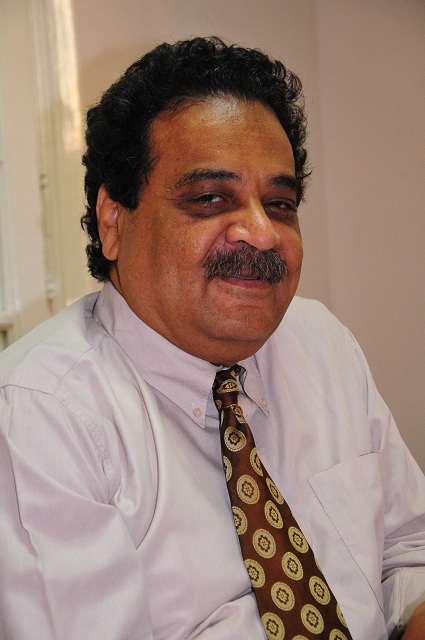
After viewing the results of Egypt’s last parliamentary elections, we can safely say that they were not only contested by political parties, but also those who advocated for competing attitudes and views about the state of Egypt and its future. We have at times attempted to monitor these attitudes, identifying four major points of conflict around on which they focus and contribute towards polarisation in our society. These include conflicts between the religious and the secular, the exploiters and the exploited, those with money versus those with power, and finally those who support the establishment of an open democracy versus those who would seek to see once again the rise of a dictatorship. However recently we have identified a fifth point of contention, which exists between Egypt’s corrupt elite, and the masses of its citizens who live a daily life of hopelessness.
Many of those who we today would label as corrupt were in fact at one point part of Egypt’s hopeless masses, seeking in vain to change and alter the state of the country’s affairs, eventually giving up and succumbing to the trappings of nepotism. Before the revolution Egypt’s hopeless masses were far and widespread; however with the outbreak of the revolution and the rise of the Muslim Brotherhood to power the pressure on them has hardened and increased. Although the country’s grinding economic crisis is certainly one of the primary sources of the despair and frustration felt by many of our citizens, Egypt’s crisis of hopelessness also strikes at the heart of a deep cultural and emotional impasse, whose effect has been exponentially compounded recently with the dashing of the hopes of those Egyptian youth who initially launched the 25 January Revolution.
Many hopeless Egyptians have taken to adopting the same mantra to express and characterise their apathy, responding to calls for political action by saying “what’s the point?” or “they’ll pursue their interests and do what they want regardless of what we do”. References to “they” usually indicate the country’s ruling military junta, represented before the revolution by Hosni Mubarak, and led currently by Mohamed Morsi, Khairat El-Shater and the Muslim Brotherhood’s Guidance Bureau.
Before the revolution, the iron grip policies practiced by the regime were that which led Egyptians to largely feel that there was “no point” to political engagement. After the revolution, these feelings temporarily subsided, only to return once again after the results of the first referendum, steadily increasing during the parliamentary and presidential elections, and reaching their peak after the release of the results of the last referendum.
Throughout the years, Egyptians have taken to adopting a number of methods to try and lighten the load of such despair. Many of those living in the slums and forgotten villages throughout the country have travelled to work in Libya, others died pursuing jihad, while many from the country’s middle class wasted away frequenting sheesha bars or taking drugs. Others, however, turned to corruption, justified by the logic that “everyone looks out for their personal interests, so who am I to blame?” This mind-sight is largely associated with those Egyptians who, out of economic desperation, travelled to work in the Persian Gulf in the ever lucrative oil sector. The reasons for one travelling to the Gulf are clear, as oftentimes one would find that they could earn up to 40 times as much as they would in Egypt, oftentimes doing the same amount of work (or less). In the midst of this miracle, it is no shock then that many Egyptians, who are aware of such massive discrepancies in income and lifestyle, would eventually before long come to hate themselves and the country in which they live.
The historical roots of this dichotomy trace their political origins back to the 1950s, when wealth and influence were first parcelled out and distributed within the halls of Egypt’s bureaucracy, with those deemed “loyal” obtaining the confidence of the regime, while simultaneously eating from the hands of the people, whose silence was cheaply purchased with the granting of nominal civil rights. In this environment of widespread cronyism, it makes sense then that the hopes of tens of thousands of Egyptians working in the country’s political institutions were dashed, similar to that of Egypt’s revolutionaries who, in an attempt to destroy such a system, found themselves further marginalised by it. This is to say nothing of those Egyptians from within all sectors of society, whose confidence in their ability as a people to succeed and triumph over adversity was destroyed in the days following the 1967 war.
In the midst of this frustration, criminalisation of political activity, and ever present low wages, Egypt today has come to resemble how it once looked under the rule of the Mamluks, who took to pillaging and plundering the Bulaq market if their treasury coffers became depleted. In this way, corruption came to creep into the lives of all Egyptians, not as a way for them to acquire wealth or live a lavish life, but rather as a means and primary source of income for those seeking to meet their minimum daily needs.
The worst part about corruption and hopelessness within Egypt is not that it has simply penetrated and permeated itself throughout our state apparatus, but rather that it has spread and become institutionalised within it, used as a means of support for those who find themselves in dire straits.
It is true that as far as the state of sovereign positions within the country’s army, police forces, judiciary and senior management are concerned, conditions have improved slightly over the years, however this does not negate the fact that for decades the salaries of those working in these institutions were minimal, pushing those receiving them into the brink of despair, and eventually of course, corruption. This sad state of affairs is a vicious cycle, which unfortunately has not changed since the revolution. For as the hopes of millions of Egyptians are dashed, the scramble to make a living in the midst of overcrowding and raging competition for jobs intensifies, causing the rate of corruption to be exacerbated under the mounting pressures.
These terms, “hopeless” and “corrupt”, serve as are mere acronyms for the deep sense of fear felt by Egyptians for what the future brings, and are partial expressions of those suspicious rumours which have begun to circulate which say that the revolution itself was a planned and orchestrated event, aimed at further denigrating Egyptian society. We know that no revolution can create heaven on earth, and that so far we have failed to accomplish much of what we set out to do on 25 January; however this should not cause us to forget the progress that we have made, or feel as if the rise of the Muslim Brotherhood to power has brought us to the end of the line. Many of those who initially supported the Brotherhood have come to hate them, and it should be noted that whereas a year ago, their candidates succeeded in securing 100% of seats in the Pharmacists’ Syndicate’s governing council, this year they obtained only 12%. Participation, perseverance and will, are the only things that will restore honour to our revolution, and cause the Brotherhood influence to wane within the nation’s student unions, journalist bureaus, and veterinarian and pharmacist syndicates. With God’s blessings, the rest will follow.




